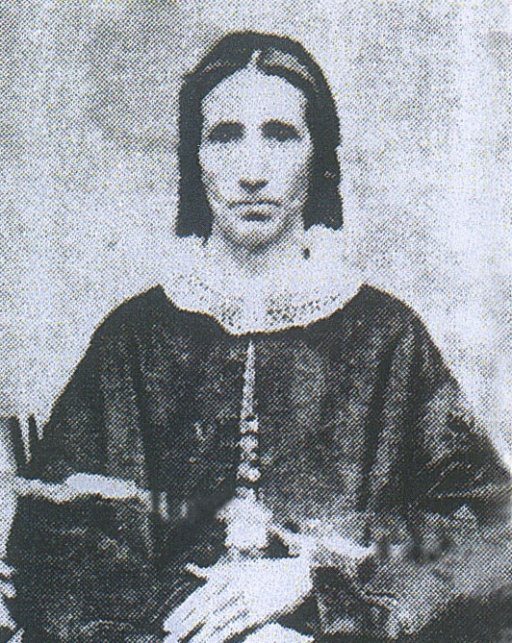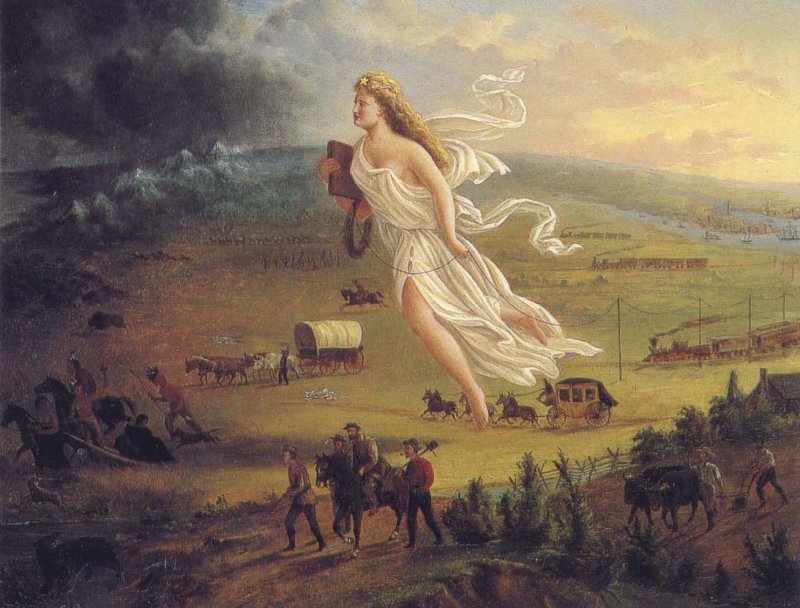Parents
Spouse
Children
Oregon Trail
This famous painting of the Oregon trail represents the idea of "Manifest Destiny", an often held belief among Americans at the time:
"American Progress, an 1872 painting by John Gast, is an allegorical representation of the modernization of the new west. Here Columbia, a personification of the United States, leads civilization westward with American settlers. She brings light from the East into the darkness of the West, stringing telegraph wire as she sweeps west; she holds a book that "represents learning and knowledge" as well...Historians have emphasized that "manifest destiny" was a contested concept — Democrats endorsed the idea but many prominent Americans (such as Abraham Lincoln, Ulysses S. Grant, and most Whigs) rejected it. Historian Daniel Walker Howe writes, "American imperialism did not represent an American consensus; it provoked bitter dissent within the national polity.""
Source: https://en.wikipedia.org/wiki/Manifest_destiny
"American Progress, an 1872 painting by John Gast, is an allegorical representation of the modernization of the new west. Here Columbia, a personification of the United States, leads civilization westward with American settlers. She brings light from the East into the darkness of the West, stringing telegraph wire as she sweeps west; she holds a book that "represents learning and knowledge" as well...Historians have emphasized that "manifest destiny" was a contested concept — Democrats endorsed the idea but many prominent Americans (such as Abraham Lincoln, Ulysses S. Grant, and most Whigs) rejected it. Historian Daniel Walker Howe writes, "American imperialism did not represent an American consensus; it provoked bitter dissent within the national polity.""
Source: https://en.wikipedia.org/wiki/Manifest_destiny

